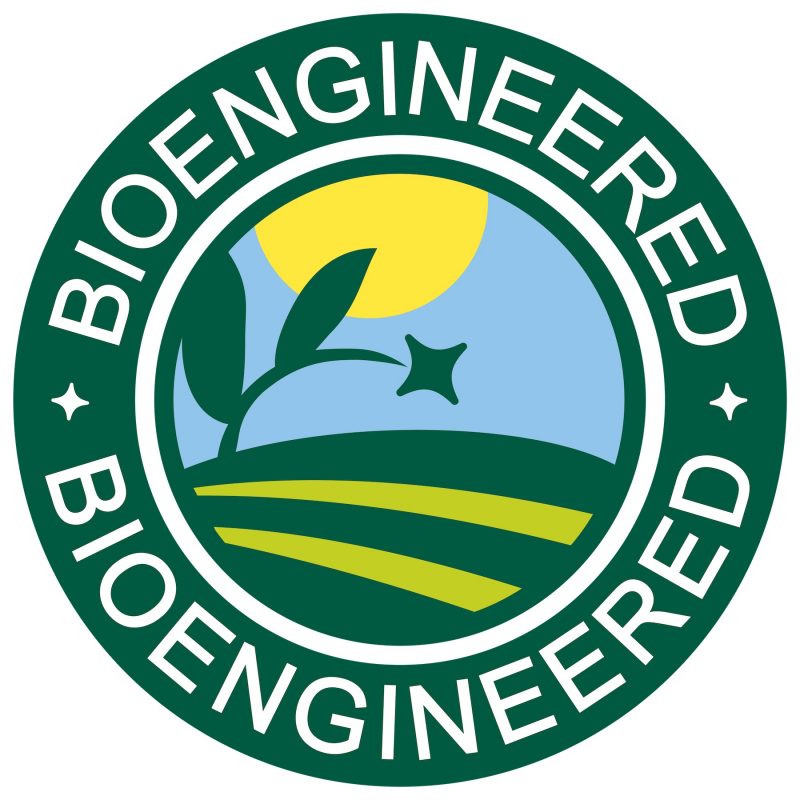New “Bioengineered” GMO labeling law denounced as weak, complicated, and full of loopholes

Published: February 1, 2022
Category: GMO Labeling News
The new U.S. GMO labeling law, called the National Bioengineered Food Disclosure Standard (NBFDS), took effect on January 1st and was widely criticized by both opponents and supporters of GMO foods.
Andrew Kimbrell, executive director of the Center for Food Safety, which filed the lawsuit said: “These regulations are not about informing the public but rather designed to allow corporations to hide their use of genetically engineered ingredients from their customers. It is a regulatory scam which we are seeking to rescind in federal court.”
CFS is urging its members to “become citizen investigators and find and expose the companies that are using QR codes instead of on-package text or symbol labeling, thereby trying to keep us in the dark about what they have put in our food.”
NBFDS was enacted after Vermont passed the nation’s first GMO labeling law in 2014. Food manufacturers, concerned that other states could pass similar laws to create a patchwork of such laws nationwide, lobbied Congress to pass a GMO labeling law. The law, dubbed The DARK (Deny Americans the Right to Know) Act, was passed in 2016 and signed by President Obama. The bad law then led to a bad GMO labeling standard.
An editorial in the Chicago Tribune stated: “The Feds have managed to turn a straightforward mandate, designed to better inform the public, into a complicated decision tree that only a bureaucrat could love.”
The Consumer Brands Association, which represents major food companies, has urged USDA to pause implementation temporarily due to supply chain disruptions caused by the COVID-19 pandemic; a spokesperson said: “We believe the government must take a ‘do no harm’ position right now that allows companies to focus on delivering essential products to consumers.”
Supporters of GMO crops also criticized NBFDS. “The worst part of this law is the use of the term ‘bioengineered’ because that’s not a term most consumers are familiar with,” said Gregory Jaffe, director of the project on biotechnology for the nonprofit Center for Science in the Public Interest.
Here are some key points about the NBFDS:
- How is “bioengineered” defined? A “bioengineered” plant or animal has had a new gene inserted into it to give it a useful trait, like making it resistant to a pest or disease, or enhancing its nutritional value.
- The BE labeling rules contain many loopholes. #1: A food could contain GMO ingredients but if the genetic material is not detectable through testing, no labeling is required. Foods containing highly processed ingredients such as oils and starches and sugar from GMO sugar beets would not be subject to labeling because their GMO DNA is not detectable. An estimated 70% to 80% of processed foods contain GMO ingredients and many of these would not be subject to labeling because GMO material is not detectable.
- Loophole #2: Food products will either have a round green label that says “bioengineered” or “derived from bioengineering,” or a label that will list a phone number to call or text for more information, or a QR code that takes you to an online disclosure. This is considered a major weakness in the law since more than 100 million Americans do not have access to smartphones needed to read QR codes. Reading such codes is also cumbersome for shoppers.
- Loophole #3: NBFDS rules don’t cover products that list meat, poultry, or eggs as their first ingredient or the second ingredient after water, stock, or broth. Many prepared foods in the frozen food section, such as meat lasagna or chicken burritos, may contain GMO ingredients and not be labeled.
- Loophole #4: Meat, milk, and egg products are not subject to labeling even if the animals were fed GMO feed.
- Loophole #5: The NBFDS sets a threshold for the unintended presence of GMO ingredients at 5%, which is more than five times higher than the European Union threshold of 0.9%.
- Loophole #6: Little or no enforcement. The USDA will respond to complaints but there will be no in-store spot checks of food products.
Source: Philadelphia Inquirer, Food Tank
To view source articles, visit: https://www.inquirer.com/news/nation-world/gmo-food-labeling-changes-genetically-modified-grocery-stores-20220101.html
Organic & Non-GMO Insights February 2022




